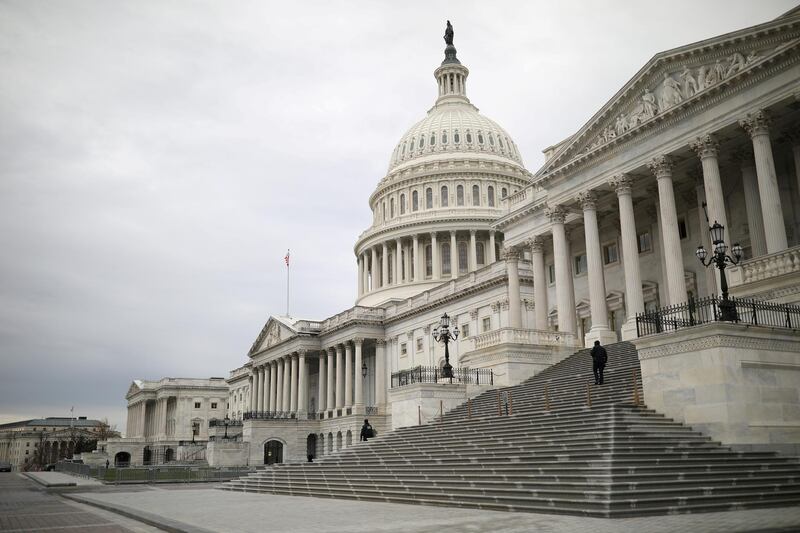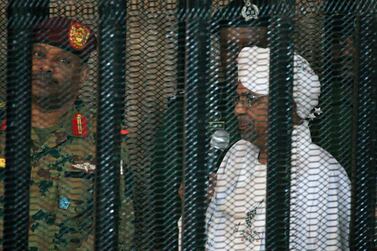Senate Democrats have increased demands for granting Sudan sovereign immunity and are delaying legislation for a broader settlement, threatening a deal brokered by the Trump administration that could lead to Khartoum making peace with Israel.
The deal that US President Donald Trump announced on October 23 promised the new transitional government in Sudan, restoration of its sovereign immunity and removal from the State Department’s list of “state sponsors of terror”, a list the country has been part of since 1993.
In return, Sudan would pay $335 million to compensate the US victims of Al Qaeda attacks in 1998 in Kenya and Tanzania, which were backed by Khartoum. Sudan would also open political and economic relations with Israel.
But 45 days into the deal, Democrats in Congress are stalling a bill that would grant Sudan sovereign immunity and safeguard foreign economic investments in the country as it transitions from the autocratic rule of Omar Al Bashir.
On Monday, a review by the State Department was due to end and officially remove Khartoum from the terrorism list. As of noon in Washington, Sudan was still on the list, along with Iran, North Korea and Syria.
According to The New York Times, the head of Sudan's Sovereignty Council, Gen Abdel Fattah Al Burhan, will "not move forward with warming ties with Israel before Congress passes the so-called legal peace legislation" that would grant the country sovereign immunity, something Khartoum would like to see done before the end of the year.
But according to a Congressional source who spoke to The National, senior Democrats, including Senate minority leader Chuck Schumer and ranking member of the foreign relations committee Bob Menendez, are seeking more incentives from Khartoum and are not ready to move legislation forward in the next two weeks.
The Senate will go into recess on December 21, delaying the prospects of a trilateral peace deal between the US, Sudan and Israel into next year.
Alberto Fernandez, the vice president of Memri (Middle East Media Research Institute) and a former charge d'affaires at the US embassy in Khartoum, saw the delay as counterproductive and one that will backfire on Sudan’s transition.
"Senators Menendez and Schumer are taking the sides of the lawyers, suing Sudan for terrorism support by the [ousted] Bashir regime, but no one sues today's Afghanistan for the Taliban's support for 9/11," Mr Fernandez told The National.
Lawyers are seeking higher compensation than the one the State Department had already agreed to with Khartoum and are involving US citizens that were naturalised after the attacks. There is also a separate push to sue Sudan for the 9/11 attacks.
“The cleanest and clearest opportunity for Sudan is to pass the legislation now and then a Biden administration comes in which prioritises Sudan's democratic transition,” Mr Fernandez said. Failure to do so would primarily risk progress for the transition itself, he said.
Axios reported on Monday that Israel and the Trump administration are heavily lobbying Congress to pass the sovereign immunity legislation.
Cameron Hudson, a senior fellow at the Atlantic Council and former chief of staff for the US special envoy to Sudan, did not foresee a swift resolution.
"It feels unlikely [for the Sudan-Congress stand-off] to be resolved [before the end of the year], and even if there was an agreement on whether and how 9/11 groups could sue Sudan, the legal peace has to be approved through a legislative act," Mr Hudson told The National.
He said the debate was more about partisan gridlock between outgoing President Trump and Democrats, and less about Sudan.
“The debate over the legal peace legislation for Sudan does not even involve Sudan. It is a fight between Democrats in the Senate and the Trump administration. Sudan is caught in the middle and will end up paying the price if the two sides cannot agree,” Mr Hudson said.
While the incoming Biden administration could reap benefits in improving ties with Sudan and promoting Arab-Israeli peace deals, Mr Hudson feared it would be faced with the same hurdles. “Senators Schumer and Menendez have already said that their positions will not change under a Biden administration.”








